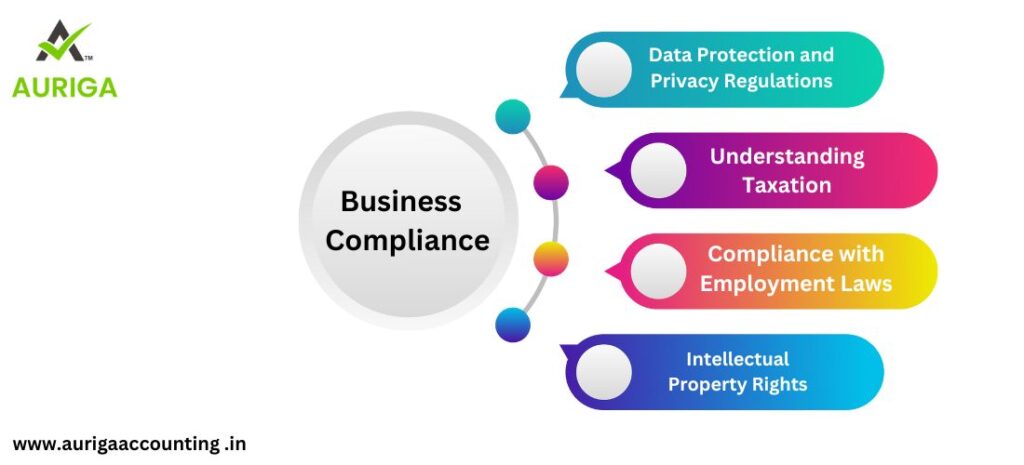
NO.1 COMPLETE GUIDE OF SETTING A NEW BUSINESS?
Introduction
ToggleYOU NEED COMPLETE GUIDE OF SETTING A NEW BUSINESS?
Introduction of setting a new business
- Determine Your Business Concept. …
- Research Your Competitors and Market. …
- Create Your Business Plan. …
- Choose Your Business Structure. …
- Register Your Business and Get Licenses. ...
- Get Your Finances in Order. …
- Fund Your Business. ...
- Apply for Business Insurance.
Why Start a New Business?
Starting a new business can be an exciting and fulfilling journey. It allows you to pursue your passions, create something of value, and potentially achieve financial independence. Entrepreneurs often start businesses to solve problems, meet unmet needs, or turn their hobbies and interests into profitable ventures. It can be a path to personal and professional growth, offering a sense of accomplishment and autonomy.
The Entrepreneurial Mindset
Before you embark on the journey of starting a business, it’s important to cultivate an entrepreneurial mindset. This mindset includes qualities like perseverance, risk-taking, adaptability, and a willingness to learn from failures. It’s about being proactive, creative, and open to new opportunities.
Entrepreneurship also involves setting clear goals, planning strategically, and staying resilient in the face of challenges. Keep in mind that not all businesses succeed, but failure can be a valuable learning experience.
Idea Generation and Validation
Identifying Your Passion and Interests
A good starting point for your business venture is to identify your passion and interests. Businesses often thrive when their founders are genuinely enthusiastic about their products or services. What do you love to do or create? What problems are you passionate about solving? Your personal interests can provide a foundation for your business idea.
Market Research
Once you have a business idea, it’s essential to conduct thorough market research. Market research helps you understand your industry, target audience, and competitors. You can use a variety of research methods, including surveys, interviews, and online tools, to gather valuable data. This information will guide your decisions and help you refine your business concept.
Competitor Analysis
Analyzing your competitors is crucial for identifying gaps in the market and understanding how your business can differentiate itself. Study your competitors’ strengths and weaknesses, pricing strategies, marketing approaches, and customer reviews. This analysis can inform your business strategy and help you gain a competitive edge.
Validating Your Business Idea
Before you invest significant time and resources, validate your business idea with a minimum viable product (MVP) or a prototype. This allows you to test the market’s response and gather feedback from potential customers. Validation helps ensure that there is demand for your product or service.
Business Planning
Creating a Business Plan
A well-structured business plan is a roadmap for your business’s success. It outlines your goals, strategies, and the steps needed to achieve them. A typical business plan includes the following sections:
Executive Summary: A concise overview of your business, including your mission, goals, and the opportunity in the market.
Market Analysis: Detailed information about your industry, target market, and competitive landscape.
Company Description: A description of your business, its history, and its unique selling proposition.
Products or Services: Information about what you offer, including pricing, features, and benefits.
Marketing and Sales Strategy: Your plan for attracting and retaining customers.
Management and Organization: Details about your team, their roles, and the organizational structure.
Funding Requirements: How much capital you need and how you intend to secure it.
Financial Projections: Projections of revenue, expenses, and profitability for the next few years.
Appendices: Additional documents and information that support your plan, such as resumes, market research data, and legal documents.
Your business plan should be a dynamic document that evolves as your business grows and changes. It’s a valuable tool for securing funding, making informed decisions, and communicating your vision to others.
How to start up a new business
- Make a business plan.
- Secure funding.
- Surround yourself with the right people.
- Follow the right legal procedures.
- Establish a location.
- Develop a marketing plan.
- Build your customer base.
- Plan to change.
How to be an entrepreneur
- Build Your Skill Set and Knowledge Base. No matter what, you want to start and stay curious. …
- Build Your Network. No one ever succeeded alone. …
- State Your Idea, Claim Your Niche. …
- Find and Understand a Market. …
- Design Your Business and Idea. …
- Secure Finding. …
- Build Your Business.
Legal Structure and Registration
Choosing a Legal Structure
Selecting the right legal structure for your business is essential. Common options include sole proprietorship, partnership, limited liability company (LLC), corporation, and more. Each structure has its own advantages and disadvantages in terms of liability, taxes, and operational flexibility. Consult with a legal professional to choose the most suitable structure for your business.
Registering Your Business
Once you’ve chosen a legal structure, you’ll need to register your business with the appropriate government authorities. The registration process varies depending on your location and business type. This step ensures that your business is recognized and operates legally. It may also involve obtaining an employer identification number (EIN) from the IRS in the United States.
Obtaining Necessary Permits and Licenses
Depending on your business type and location, you may need various permits and licenses to operate legally. These permits can range from zoning permits and health department licenses to professional certifications. Research the specific requirements for your industry and location and obtain all necessary permits and licenses.
Finances and Funding
Budgeting and Financial Planning
Effective financial management is crucial for your business’s success. Start by creating a detailed budget that outlines your projected income and expenses. Include all startup costs, operating costs, and contingencies. Regularly review and update your budget to track your financial performance.
Sources of Funding
Funding your business can come from various sources, including personal savings, loans, investors, and grants. Explore the following funding options:
Personal Savings: Many entrepreneurs use their savings to start their businesses. This allows for full control but carries personal financial risk.
Business Loans: Banks, credit unions, and online lenders offer loans for small businesses. Consider options like term loans, SBA loans, or lines of credit.
Investors: Venture capitalists, angel investors, and crowdfunding platforms can provide equity or debt financing.
Grants: Some government and private organizations offer grants for specific business types or purposes.
Bootstrapping: Bootstrapping involves self-funding your business through revenue generated from sales. This approach gives you complete control but may limit your growth initially.
Evaluate the pros and cons of each funding source and choose the one that aligns with your business’s financial needs and long-term goals.
Business Regulations and Compliance

Understanding Taxation
Compliance with tax regulations is a critical aspect of business operations. Understand your tax obligations, including income tax, sales tax, payroll tax, and any industry-specific taxes. Consider working with an accountant or tax professional to ensure proper tax planning and reporting.
Compliance with Employment Laws
If you hire employees, be aware of labor laws, including minimum wage, overtime, and workplace safety regulations. Comply with employment discrimination laws and establish HR policies that create a fair and safe work environment.
Intellectual Property Rights
Protect your intellectual property by registering trademarks, copyrights, and patents as necessary. This safeguards your business’s unique assets and prevents others from using them without permission.
Data Protection and Privacy Regulations
If your business collects and stores customer data, be aware of data protection and privacy regulations, such as the General Data Protection Regulation (GDPR) in Europe or the Health Insurance Portability and Accountability Act (HIPAA) in the United States. Implement data security measures and privacy policies to comply with these laws.
how auriga accounting help you to setting a new business
Auriga Accounting, a fictional company name, can play a crucial role in helping you set up a new business by providing a range of financial and accounting services. While specific services may vary depending on the company’s expertise and your business’s needs, here are some ways in which Auriga Accounting, or any professional accounting firm, can assist you in the process of starting a new business:
Financial Planning and Analysis:
- Auriga Accounting can help you create a comprehensive financial plan that outlines your startup costs, projected expenses, and expected revenue.
- They can assist in setting realistic financial goals and strategies to achieve them.
Business Structure Selection:
- Auriga can provide guidance on choosing the most suitable legal structure for your business, whether it’s a sole proprietorship, LLC, partnership, or corporation.
- They can explain the tax implications and legal requirements associated with each structure.
Registration and Compliance:
- Auriga Accounting can help you with business registration, obtaining the necessary licenses and permits, and ensuring compliance with local, state, and federal regulations.
- They can assist in setting up your business entity properly.
Tax Planning and Compliance:
- They can advise on tax strategies that minimize your tax liabilities while keeping your business compliant with tax laws.
- Provide ongoing support for tax filing and reporting to avoid costly mistakes.
Bookkeeping and Accounting Services:
- Auriga Accounting can set up and manage your financial records, including income statements, balance sheets, and cash flow statements.
- Offer bookkeeping services to maintain an accurate and up-to-date record of your financial transactions.
Budgeting and Financial Projections:
- They can assist in creating a detailed budget that helps you manage your cash flow and make informed financial decisions.
- Provide financial projections to help you understand your business’s financial future.
Payroll Management:
- If you plan to hire employees, Auriga can handle payroll processing, ensuring that your employees are paid accurately and on time.
- Help with compliance regarding payroll taxes and reporting.
Financial Reporting and Analysis:
- Generate regular financial reports to help you track the financial performance of your business.
- Offer in-depth analysis to identify trends and areas for improvement.
Business Valuation:
- If you’re seeking investors or planning to sell your business in the future, Auriga Accounting can provide business valuation services to determine its worth.
Risk Assessment and Management:
- Assist in identifying potential financial risks and implementing strategies to mitigate them.
- Help you create a disaster recovery plan to ensure business continuity in case of unexpected events.



